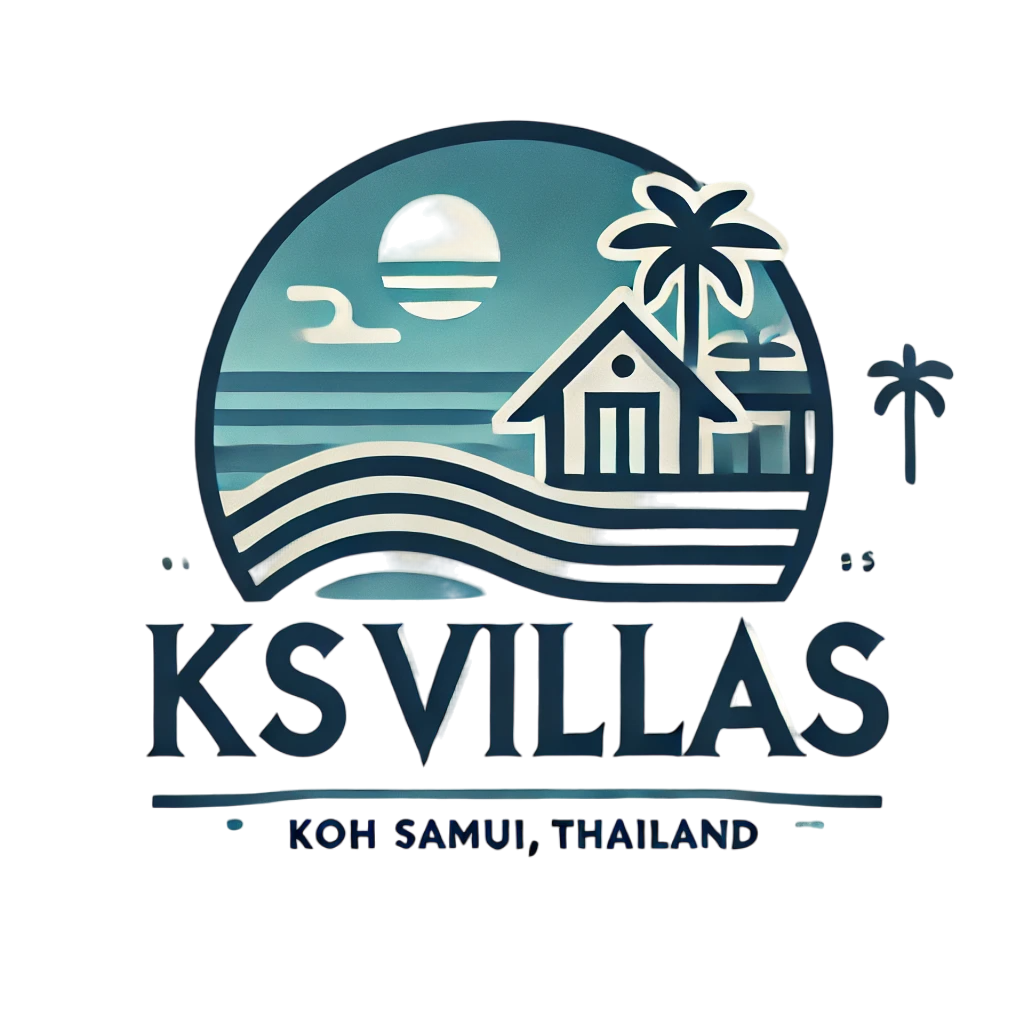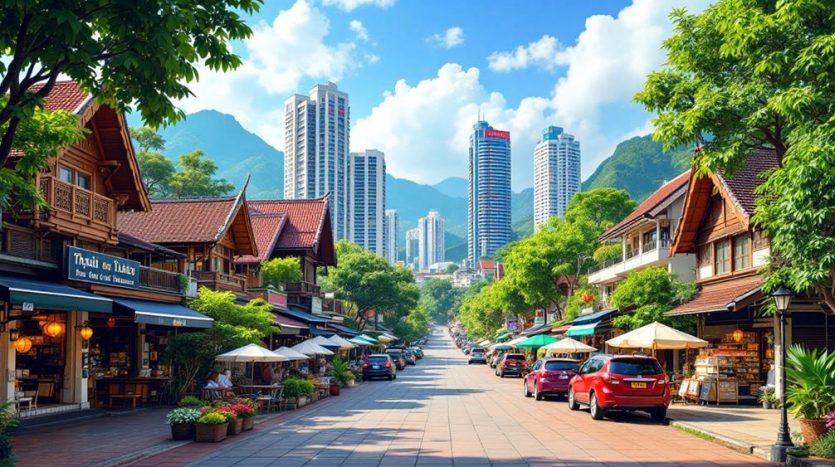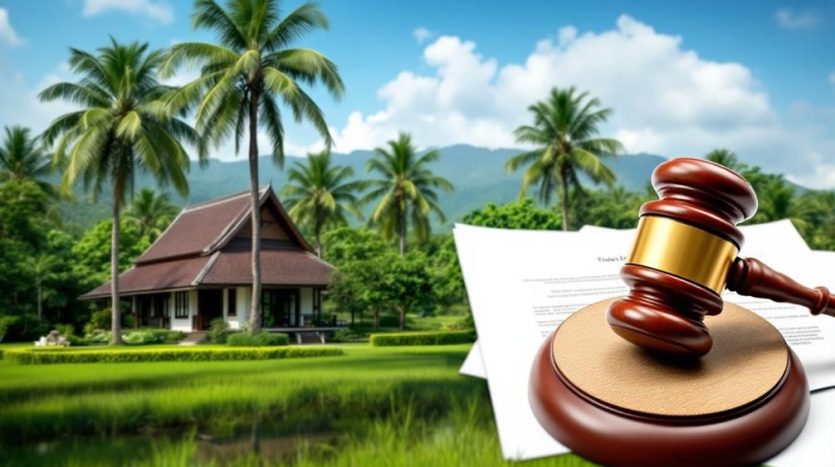How Much US Dollars Is a House in Thailand?
When contemplating the cost of a house in Thailand, you need to evaluate several factors, such as location, type of property, and market demand. In bustling Bangkok, you might find a modest condo for around $100,000, while luxury abodes can exceed $1 million. If you're drawn to the allure of beachfront living in Phuket, prices can soar from $500,000 to over $3 million. However, rural areas offer a more budget-friendly range between $30,000 and $100,000. But what about legal concerns and financing options? There's much more to navigate in this intriguing market.
Key Takeaways
- Urban condos in Bangkok start at around $100,000, with luxury options exceeding $1 million.
- Beachfront properties in Phuket range from $500,000 to over $3 million, based on luxury features.
- Rural properties are more affordable, priced between $30,000 and $100,000.
- Average property prices in Bangkok have increased from $150,000 in 2019 to $170,000 in 2023.
- Less touristy coastal areas may offer properties under $300,000.
Factors Influencing House Prices
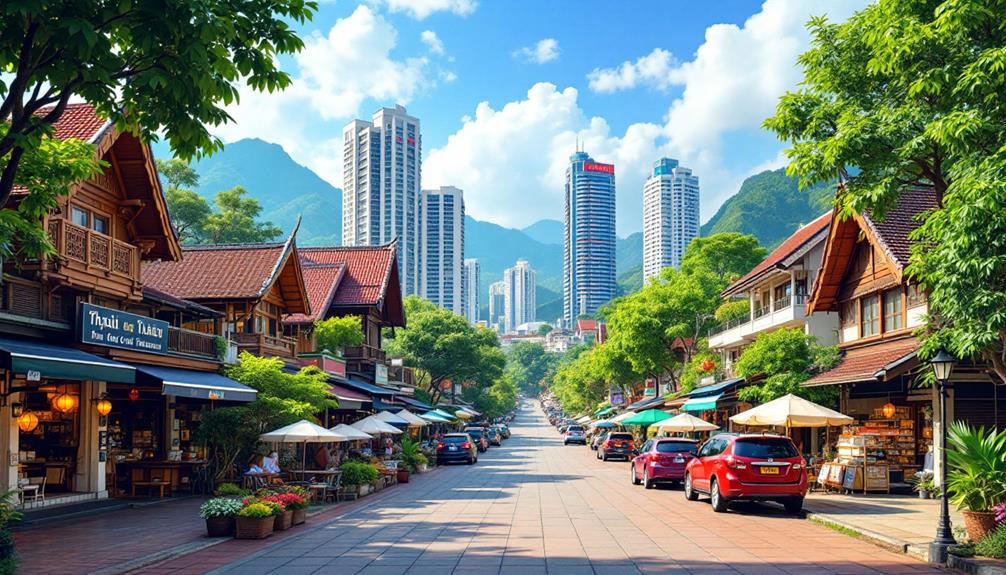
When considering the cost of a house in Thailand, it's vital to understand the myriad factors that influence property prices.
First, market demand plays a pivotal role. If a location's hotter than a Thai chili pepper, expect prices to soar like a tuk-tuk on an empty Bangkok street. Demand fluctuates based on tourist influx, expat population growth, and even the latest Netflix series set in Thailand.
Another important factor is the location itself; for instance, urban houses in Bangkok can be considerably pricier compared to rural properties due to high demand and amenities. Additionally, proximity to amenities like schools and hospitals can also boost property values greatly.
Next, property amenities are vital. If you're eyeing a house with a pool so big you could host a boat race, be ready to shell out more baht.
Amenities such as gyms, gardens, and proximity to the nearest 7-Eleven (because midnight snack runs are crucial) considerably affect pricing. The more luxurious the bells and whistles, the larger the dent in your wallet.
Cost of Urban Properties
When you're exploring the cost of urban properties in Thailand, you'll notice that Bangkok's housing market trends reveal a dynamic landscape influenced by location-specific factors.
Price differences by district can be significant, with central areas commanding premium rates compared to more peripheral locations.
The expat communities in Bangkok also add unique value to certain districts, impacting housing prices due to international interest.
Urban condominium investments are particularly appealing due to their robust demand and potential for rental income, making them a strategic choice for investors.
Bangkok Housing Market Trends
The Bangkok housing market has witnessed significant fluctuations in recent years, reflecting broader economic trends and urban expansion. If you're maneuvering the Bangkok rental market, you've probably noticed that property appreciation has been both a blessing and a curse. On one hand, property values have increased, making those who bought early look like real estate geniuses. On the other hand, rental prices have followed suit, making it challenging to find a bargain without compromising on quality or location.
Let's break it down with some data to make things clearer:
| Year | Average Property Price (USD) | Rental Price Increase (%) |
|---|---|---|
| 2019 | 150,000 | 3.5% |
| 2020 | 155,000 | 2.0% |
| 2021 | 160,000 | 4.0% |
| 2022 | 165,000 | 2.5% |
| 2023 | 170,000 | 3.0% |
As you can see, property prices have been steadily climbing, much like a cat determined to reach the top shelf. Meanwhile, rental price increases have been a roller coaster, albeit a rather expensive one. So, whether you're buying or renting, understanding these trends is essential to making informed decisions in Bangkok's dynamic housing market.
Price Differences by District
Maneuvering Bangkok's housing market isn't just about understanding overall trends—it's essential to plunge into the price differences by district to make a smart investment.
Let's face it, you wouldn't want to buy a luxury property in a district where the only thing rising faster than historical prices is the traffic congestion. Districts like Sukhumvit are the darlings of the city, boasting upscale amenities and eye-watering property tags that can make your wallet quiver. Here, luxury properties can easily fetch upwards of $500,000, and that's before you even think about the renovation costs to accommodate your extensive collection of Hawaiian shirts.
Meanwhile, districts like Bang Khae are where the savvy investors lurk. Historical prices reveal a more modest appreciation, yet these areas offer a wallet-friendly entry point into Bangkok's urban property scene.
You might snag a house for around $200,000, which is a steal compared to the luxury havens.
Urban Condominium Investments
Plunging into the domain of urban condominium investments in Thailand, you'd find that these properties generally offer a compelling mix of modernity and affordability, especially in Bangkok.
Imagine sipping your morning coffee on a high-rise balcony with stunning skyline views, all for a fraction of the cost you'd pay in New York or London. Condos equipped with luxury amenities like infinity pools and state-of-the-art gyms can start as low as $100,000.
Mind you, if you're after more opulence, prices can hit the million-dollar mark, but hey, who doesn't dream big?
Data shows that Bangkok's central districts deliver rental yields of around 5-8%, which might make your wallet do a little happy dance. It's a decent return, especially considering the city's global appeal and steady influx of tourists and expats.
However, you'll want to keep an eye on market trends. The condo market has shown some volatility, so make sure you've got your investment goggles on.
Delve into the data, analyze those charts like a Wall Street pro, and maybe even throw in a little cha-cha-cha to keep things lively. Investing here can be both financially rewarding and fabulously fun!
Beachfront and Coastal Homes

Occasionally, potential homebuyers are drawn to the allure of Thailand's stunning beachfront and coastal properties, where prices can vary greatly based on location and amenities.
You might find yourself dreaming of sipping coconut water on a balcony overlooking azure waters, but before you plunge in, consider the price tag. In hotspots like Phuket or Koh Samui, beachfront homes can range from $500,000 to over $3 million, depending on the level of luxury amenities.
Want an infinity pool or a private beach? Prepare to dig a little deeper into your wallet. It's also important to factor in regional cost variations, as urban hotspots may demand higher prices compared to less populated areas.
But wait, there's more! Property maintenance is a vital aspect you can't ignore. The salty sea breeze might be great for your Instagram feed, but it's less friendly to your home's exterior.
Regular upkeep is necessary, and costs can quickly add up. You might end up spending a small fortune on repainting, roof repairs, and general wear and tear.
In less touristy areas, prices drop considerably. You might snag a coastal gem under $300,000, but remember, it's like buying sushi from a gas station—exciting yet questionable.
Always do your homework before signing any dotted lines!
Prices in Rural Areas
While beachfront properties in Thailand can stretch your budget, rural areas present a starkly different financial picture. Imagine snagging a house for less than the cost of a mid-range SUV. That's right, in Thailand's rural regions, you can find properties ranging from $30,000 to $100,000.
Depending on your luck, you might even discover a charming abode complete with scenic views and a dash of rural amenities like a local market and the occasional wandering water buffalo. However, before making a purchase, it's essential to conduct proper due diligence to guarantee a smooth transaction and avoid legal complications.
Now, before you start dreaming of rolling rice paddies and tranquil nights, let's talk property maintenance. Sure, these homes are cheaper, but they might require a bit of elbow grease. You'll need to factor in costs for upkeep, which might include fixing that leaky roof or reinforcing those slightly-too-authentic wooden floors.
But hey, think of it as a DIY adventure with a side of cultural immersion.
Rural life also offers the benefit of lower living costs overall. Local produce is cheap, and if you're lucky, your neighbors might even gift you fresh mangoes.
Just remember, while the price tag is appealing, consider the lifestyle change too.
Legal Considerations for Buyers
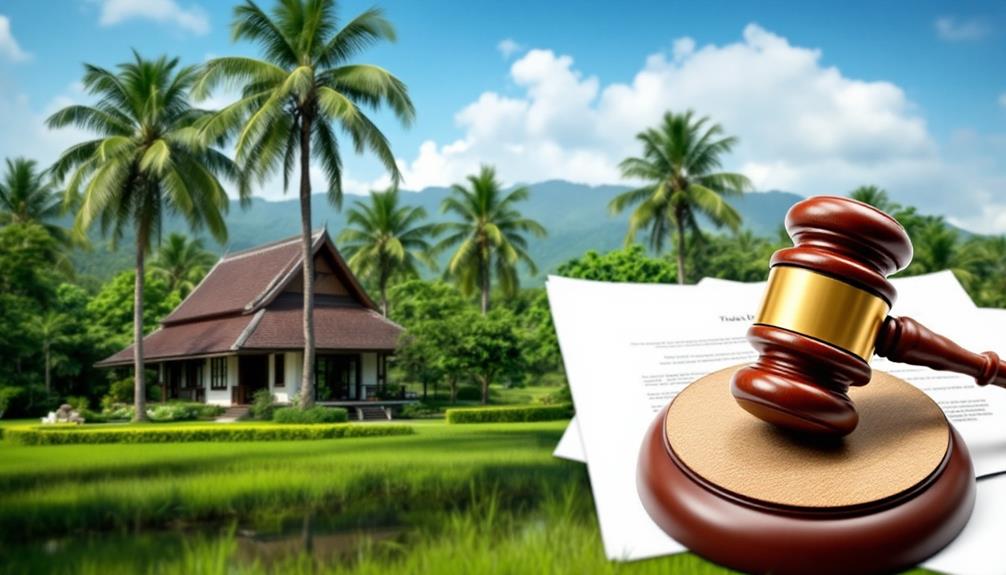
Purchasing property in Thailand almost always involves maneuvering a complex legal landscape, especially for foreign buyers. You might think you're just signing up for a postcard-perfect paradise, but wait—there's a legal labyrinth to navigate first! Let's break down the essentials.
First, foreign ownership is tricky. Simply put, you can't own land outright, but you can own a condo. Here's a table for quick clarity:
| Ownership Type | Foreigners Allowed? | Key Considerations |
|---|---|---|
| Land | No | Leasehold or Thai partner |
| Condo | Yes | Max 49% foreign ownership |
| Company | Yes, indirectly | 51% Thai ownership needed |
Next, tax implications. Buying property isn't just about the initial cost; you've got taxes lurking like a gecko on your ceiling. You'll encounter transfer fees, stamp duty, and specific business tax. Plus, the Land Department loves paperwork almost as much as they love fees!
Currency Exchange and Financing
Maneuvering the currency exchange and financing aspects of buying property in Thailand demands careful planning and precision.
First, let's address the elephant in the room—currency fluctuations. Picture the Thai Baht doing a cha-cha with the US dollar; it's a dance you must monitor closely. An unexpected dip or surge can turn your dream home into an accountant's nightmare. Use a currency exchange service that offers rate alerts and forward contracts to lock in favorable rates.
Now, let's talk mortgage options. If you're hoping to finance your slice of paradise, prepare for a few hurdles. Thai banks usually don't offer mortgages to non-residents, but don't be discouraged—there's always a loophole.
Some international banks provide mortgage options specifically for expats. Alternatively, seller financing is a potential route, where you pay the seller in installments. It's like buying a house on layaway, except the stakes are higher than your childhood toy collection.
